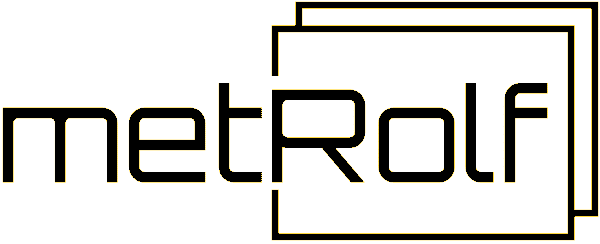In the heart of Europe's largest port, an algorithm looks at the horizon. It sees what human eyes cannot perceive: the exact time of arrival of a container ship sailing another 200 kilometers from the coast. Rotterdam's Pronto system not only predicts when the ship will arrive, but also which Quay is best used, how many cranes are needed, and even whether the weather will cause problems. This is not science fiction – this is the reality of 2025.
The Port of Rotterdam monitors 42 million ship movements daily with artificial intelligence. Where port workers used to have to gamble and improvise, machines now make decisions with 95 percent accuracy. The result? Vessel waiting times have decreased by 20 percent, and maintenance costs have decreased by 15 percent. For supply chain professionals worldwide, Rotterdam has become the laboratory where the future of logistics is invented.
The Crystal Ball of logistics
McKinsey research shows that companies that integrate AI into their supply chain operations can save up to 20 percent of their logistics costs. But the real revolution isn't in the savings – it's in the fundamental shift from reactive to predictive thinking. Where logistics managers used to solve problems after they arose, they can now predict what's going to happen before it happens.
In a distribution center outside Amsterdam, an AI system uses historical sales figures, weather forecasts, and even social media trends to predict which products will be most in demand next week. The system has learned that rainy weather not only increases umbrella sales, but also those of hot chocolate and Netflix subscriptions. These correlations are too complex for the human brain, but for AI they are patterns that are clear as glass.
Rotterdam's Digital Twin
The real breakthrough came when Rotterdam decided to make an exact digital copy of itself. This 'digital twin' is more than a computer model – it is a living, breathing virtual ecosystem that tracks and simulates every movement in the real port in real time. When a container ship sails towards Rotterdam, it also appears in the digital world, where thousands of scenarios are calculated before the ship even reaches the horizon.
TU Delft researchers discovered that multi-agent AI systems – where different algorithms work together like a team of specialists-can solve complex problems that are impossible for individual systems. In Rotterdam's digital twin, algorithms work together as a virtual Port team: one algorithm specializes in weather forecasts, another in Crane planning, another in traffic flows. Together they create an intelligence greater than the sum of its parts.
The Predictive Machine
The story of predictive maintenance began with a simple observation: machines don't just break. They emit signals – vibrations, temperature changes, sounds-announcing an upcoming defect. The only problem was that people could not interpret these signals. Oh, yes.
A crane in the Port of Rotterdam has hundreds of sensors that continuously collect data on pressure, temperature, vibration and wear. This data is sent to an AI system that has learned to recognize patterns that indicate upcoming problems. The system can predict up to three months in advance when a part needs to be replaced, long before there is a malfunction or danger.
The result is dramatic: downtime of critical equipment has decreased by 30 percent. But most importantly, the unpredictability is gone. Port employees can now plan with certainty when maintenance is needed, which parts need to be ordered, and how many personnel they need. The chaos of crisis management has been replaced by the calm of predictability.
Route intelligence in action
On a highway between Rotterdam and Germany, a truck drives that carries more than just cargo – it carries data. His route is determined not by a driver with a map, but by an AI algorithm that processes real-time information about traffic congestion, weather conditions, fuel prices at various gas stations, and even the law of rest and driving time.
The algorithm has calculated thousands of routes before the truck has even driven away. It knows that the highway near Arnhem will be stuck in two hours due to an accident that has not yet happened, but which is statistically likely. It has calculated an alternative route that, although ten kilometers longer, brings the truck to its destination twenty minutes earlier.
Dutch logistics companies using this technology Report fuel savings of up to 15 percent. But the real advantage lies in the reliability: customers know exactly when their cargo arrives, not because it has been promised, but because it has been predicted.
The Human Factor
Paradoxically, the rise of AI makes human expertise more valuable. While machines excel at processing data and recognizing patterns, humans remain indispensable for strategic thinking, creativity, and ethical decision-making. The most successful supply chain professionals of 2025 are not those who fear AI, but those who have learned to work with it.
Rotterdam is home to a new generation of logistics managers who speak AI as a second language. They understand when to trust an algorithm and when to follow their human intuition. They know how to interpret data, but also when to ignore algorithms because reality is more complex than any dataset can represent.
The Future Writes Itself
The EU AI regulation that came into force in February 2025 made it clear that AI should not only be powerful, but also responsible. Dutch companies are at the forefront of developing transparent, explainable AI systems that are not only efficient, but also ethically responsible.
Rotterdam's success spreads like an oil slick across the Netherlands. Distribution centers in Venlo are experimenting with autonomous robots that plan their own routes. In Amsterdam, logistics startups are testing AI algorithms that can predict which supplier will deliver the best quality at the lowest price. The Belgian port of Antwerp is sending delegations to Rotterdam to learn how AI transformation works in practice.
The New Reality
For supply chain professionals, the message is clear: the future belongs to those who see AI as a partner, not a threat. The question is no longer whether AI will change your work, but how quickly you can adapt to take advantage of the opportunities offered by this technology.
In Rotterdam, that algorithm is still looking at the horizon. It sees ships that have not yet left Shanghai, predicts demand peaks that will not arise for months, and plans routes for cargoes that have not even been produced yet. This is the new reality of supply chain management: a world where machines learn to think, and where the smartest professionals learn to work with them.
The revolution is no longer on its way. She's already here.
Bronnen: McKinsey & Company, Port of Rotterdam Authority, TU Delft AI Research, DocShipper, EASE Logistics

